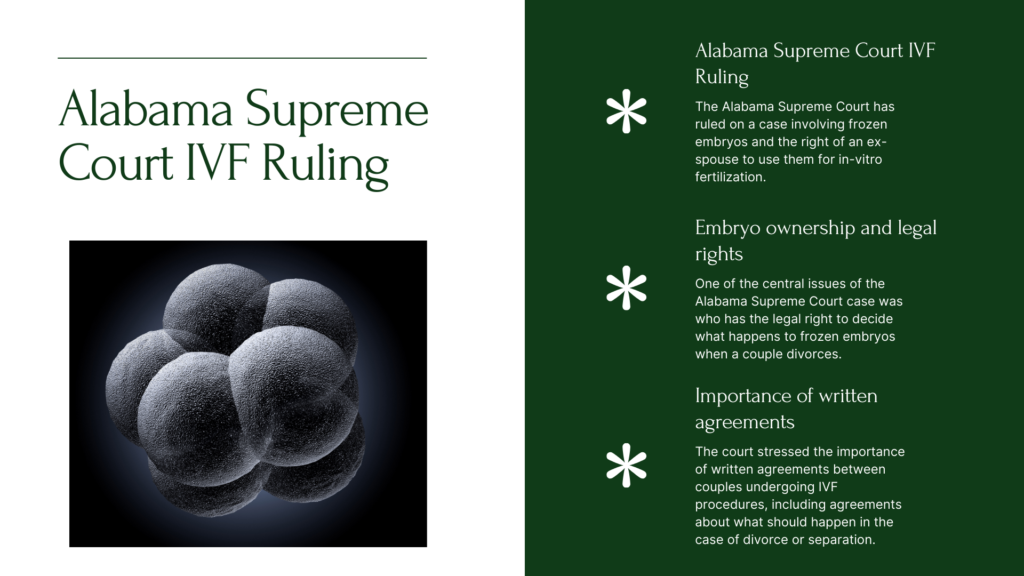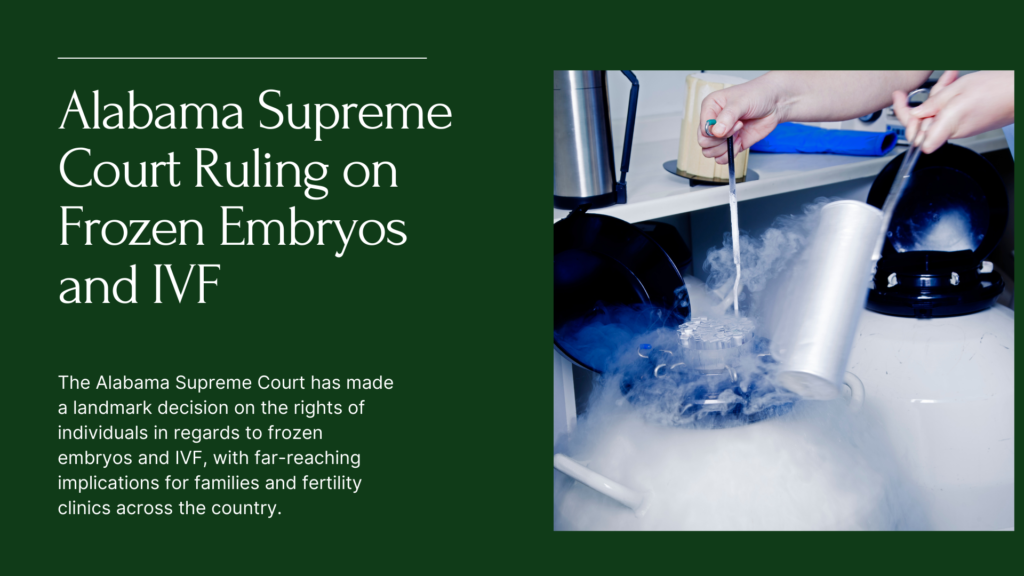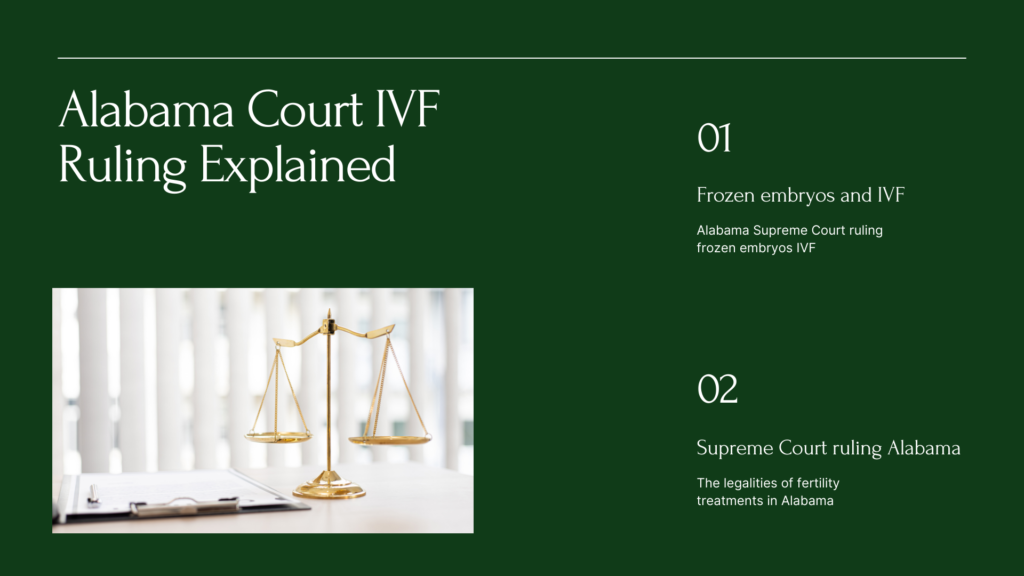Unpacking the Impact: The Alabama Supreme Court’s Ruling on Frozen Embryos
On February 16, 2024, a landmark decision by the Alabama Supreme Court introduced a seismic shift in the legal and ethical landscape of reproductive technologies in the United States. By declaring frozen embryos as “unborn children,” the court’s ruling not only sets a significant legal precedent but also stirs a profound debate on the intersection of law, ethics, and reproductive rights.
– Dr. G. A. Ramaraju DNB PhD, Consultant Krishna IVF Clinic
The Catalyst Behind the Ruling
The decision emerged from a tragic incident at a hospital-based IVF clinic in Alabama, where unauthorized access led to the destruction of several frozen embryos. In a comprehensive 131-page ruling, the court categorized these embryos under the protection of the state’s wrongful death statute, marking a pioneering moment in legal history.

This classification of frozen embryos as “unborn children” for civil liability purposes raises critical questions about the future of in vitro fertilization (IVF) and assisted reproductive technologies (ART).
Legal Precedent and Its Implications
This ruling is groundbreaking for Alabama and potentially for the entire country, as it establishes a new legal framework for how embryos are viewed and treated. The immediate fallout saw two Alabama IVF clinics pausing operations, underscoring the profound impact this decision could have on reproductive healthcare providers and patients alike. It signals a challenging path forward, not only for those directly involved in IVF procedures but also for legal experts navigating the newly altered terrain of reproductive rights.

A Ripple Effect on IVF and Reproductive Rights
The ramifications of this decision extend beyond the courtroom into IVF clinics, legal offices, and homes across Alabama—and potentially beyond its borders. By classifying frozen embryos as “unborn children,” the ruling could dramatically alter how IVF is practiced, making it not only more complicated but potentially inaccessible for many.
This could lead to a chilling effect on reproductive healthcare, as providers may face increased legal liabilities, and patients may encounter more hurdles in accessing fertility treatments.
Sparking a Crucial Debate
The court’s decision ignites a much-needed debate on several fronts. Ethically, it challenges us to reconsider our definitions of life and personhood in the context of reproductive technologies. Legally, it prompts a reevaluation of how existing laws apply to advances in IVF and ART. Socially, it calls into question the balance between protecting potential life and ensuring access to reproductive healthcare. This debate is not just theoretical but has practical implications for how we regulate and practice reproductive technologies.
Navigating the Future
As we delve into these complex issues, it’s clear that the decision’s impact will be far-reaching, affecting not just legal precedents but also ethical considerations and healthcare practices. It underscores the need for a nuanced discussion among legal experts, healthcare professionals, ethicists, and policymakers.

The goal should be to ensure that advancements in reproductive technologies are accompanied by thoughtful and comprehensive legal frameworks that balance ethical considerations with the rights and needs of individuals seeking to build their families through IVF.
This moment serves as a critical juncture for all stakeholders involved in reproductive healthcare and legal reform. It is an opportunity to engage in meaningful dialogue, challenge our assumptions, and work towards policies that reflect the complexities of modern reproductive technologies. It also highlights the importance of empathy and understanding in navigating reproductive rights’ personal, ethical, and legal dimensions.

Engaging in the Conversation
The Alabama Supreme Court’s decision is more than a legal ruling; it’s a call to engage in a broader conversation about the future of reproductive rights and technologies. As we consider the implications of defining frozen embryos as “unborn children,” we must also consider the broader context of reproductive healthcare, legal ethics, and the rights of individuals seeking to become parents.
